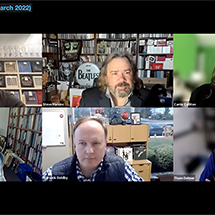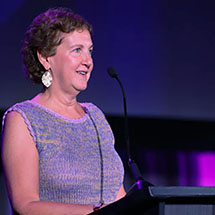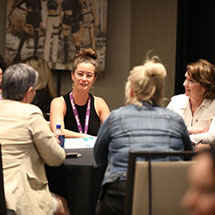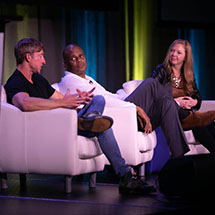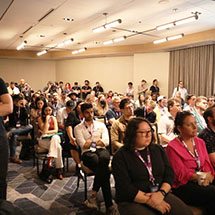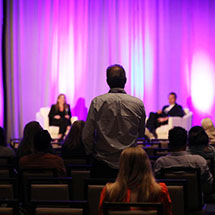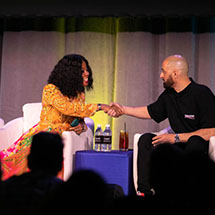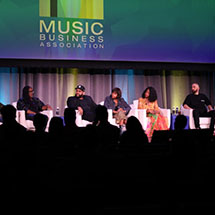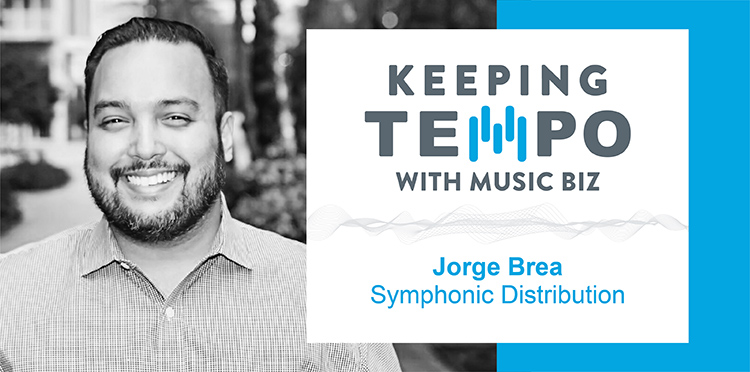
[Keeping Tempo With Music Biz] — Staying Safe, Sane and Productive: A Conversation with Symphonic Distribution’s Jorge Brea

Established as a forward-thinking distribution company, Symphonic has in many ways helped give a sneak peak into a future music industry guided by an “artist-first” strategy that bolsters everything from personal brand to release schedules. This tendency to look and plan ahead for the challenges of tomorrow has helped the company respond to the challenges that 2020 have presented our entire industry with in a major way. In this Keeping Tempo interview, we discuss with Symphonic Distribution CEO Jorge Brea how the company has managed to stay productive in the time of COVID-19, what company practices made their transition to remote working easier, their recent expansions into new global music markets, and much more.
Music Biz: How are you fairing personally, and how has your business faired, amidst the COVID-19 crisis?
Jorge Brea: It has been a challenging and a huge learning experience. This is an unprecedented time in the world that has affected many industry players in different ways. As a business, we haven’t seen a lot of our staff in person since March and we miss them.
From a business perspective, we did notice some dips in streaming consumption, especially in key areas being affected by COVID-19. We’ve also started to see some changes due to the influx of content, and we’re working hard with labels and artists to help them during these tough times. Staff-wise, our team members have remained productive, and we’ve also offered ancillary services for their mental health via our health insurance provider to help support them during this time.
We’ve become pros at Zoom and Google Hangout Happy Hours and other online games, which have really helped to keep everyone stay connected in a more relaxed fashion.
Personally, I am ready to get back to some normalcy and travel again to both see our staff and interact with our clients.
Music Biz: Symphonic is recognized as having a very strong “artist first” culture — on that note, how has the company supported its artists throughout the health crisis with the halting of tours and rescheduling of new music releases?
JB: To support our community, we started the Support Indie Music Initiative to help fans and consumers donate to artists via a webpage that we set up. Every time you refresh the page, you get a new artist or label to help and support. In addition, we’ve sponsored livestreams, expedited payments where possible, and changed restrictions on royalty thresholds so we can allow people to get funds quicker.
And on a more basic perspective, we’ve just listened. People need to interact and speak with one another, and that has helped us and anyone that we work with stay connected.
Music Biz: Were there easy pivots you were able to make as a company based on your modern structure as a contemporary record label? And, how did you respond to any other challenges that arose as the industry transitioned during the pandemic?
JB: As a business we’ve always been pretty flexible and have the ability to pivot quickly to changes. Our satellite locations are all in co-working spaces, and we all have remote machines so we can work from anywhere. When we started to see states locking down one-by-one, productivity didn’t stop but was altered for a short time until folks settled in their new setups. We’ve effectively settled into this new method of working and I think as things get back to normal, we’ll still be open to the idea of some employees working from home or splitting their work week between home and the office. I personally think it’s still important to have in-person interaction, but we respect our employees’ desire to have some isolation during productive times.
Lastly, in terms of client interaction, we’re pretty much a Google Hangout/Zoom company and have been for a while, so we’ve been heavy on scheduling meetings and really light on phone calls.
Music Biz: In what ways do you see the music industry pivoting as a whole in the aftermath of the COVID-19 crisis?
JB: I think there will be more livestreams and micro-experiences. I can see some people being reluctant to attend in-person conferences and live shows, so people will have to get more creative. Livestreaming will continue to grow as a medium, but I think there will be more of an emphasis on production and creative ways to monetize these sessions. You have to really stand out and provide high-quality programming to be noticed.
Are there ways Symphonic has evolved as a company in this time that you feel will influence how you do business going forward?
JB: I think that this time has influenced us so far in two aspects, connection and creation. Since we are now limited in the way that we can connect with clients and our community in general via our local networking events and meetings, we’ve launched a lot more livestreaming content. This has been a great way to highlight our staff and all their expertise, plus connect in a more casual way with our clients.
In addition, we’ve seen an uptick in music creation, so we’re also interested in the production aspect. That will be an area of the business we will dabble in because we have such a diverse set of artists and labels that it makes sense to provide them some tools and resources to help them make content. As a former producer, this time has been great for me personally to get back into the creative world of production, and helping artists and labels in that scope is exciting.
Music Biz: Symphonic has had a major presence of our Annual Conference over the past few years. With most industry events including ours shifting to online components during the COVID-19 crisis, how are you and the Symphonic team keeping informed and connected with your partners as the industry practices social distancing?
JB: Certainly we are always paying attention to what Music Biz has to say is one way. We additionally read many of the major trade publications like Music Business Worldwide and Billboard and encourage our employees to keep us aware of any other best practices or emerging trends. We also stay up to date by having catch ups and conversations with other business owners and even competitors. Plus, we also try to share these best practices with our community of clients as well.
Music Biz: In your eyes, how can the music industry best support the movements we are currently seeing to lift the voices of those among us who are disenfranchised and persecuted?
JB: Culture and diversity is important at Symphonic and it is also a challenging one, especially in these times — I am proud to say our company is made up of Black, LGBTQ, Middle Eastern, Asian, and Latin-X employees from all over the world. We have to listen to individuals from different backgrounds and ensure that we work hard to represent them equally.
One of the steps we’re taking is increasing our awareness internally by adding more culture and diversity training and seeking counsel from our clients of various ethnic backgrounds to help shape our business. I don’t think we’re perfect and I don’t think many businesses are, but we’re trying and will always continue to foster a very diverse and creative environment.
Music Biz: We recently covered Symphonic’s new partnership with AGD Entertainment — what drew you to working together and what do you expect this partnership to yield?
JB: AGD has done an incredible job of developing artists, so that alone was important and attractive to us. While we are a selective business, we are scaling up and have a lot of artists and labels that are difficult for us to engage with. So our goal with AGD is to have them on as an addition for any new client to work with, and eventually with existing clients as well. That level of support is one that I think will be a great option to help develop artists while we continue to focus on the distribution and expansion of new partners to work with.
Music Biz: This is just one major partnership you’ve inked this year — Symphonic also signed on with AMPED Distribution in January to deliver physical music products for your artists. As a primarily digital distribution company, why was this the right time to bolster your physical music offerings?
JB: While physical is a very tough and challenging business, we thought it would be important to re-ignite our partnership with AMPED that we actually formed years ago. We’ve got a great industry leader in Kevin Hopper — formerly with The Orchard and TVT — helming a lot of the focus on physical product there, and he’s helped us understand and craft deals that are fair and will help expand Symphonic’s presence.
Music Biz: You established offices in Nashville and Bogotá, Columbia last April, adding to your footprint in NYC and Tampa. What strategic advantages do those specific locations offer the company?
JB: We began in Tampa, Florida and are very proud of that, as we’ve created a business in a small music market that has reached artists and record labels worldwide. We’re also excited to help the Tampa music market expand its reach and opportunities.
Our expansion into New York, Nashville, and Denver all made sense in various ways. New York is one of the largest markets in the world, so we needed to be there to closely interact with new and existing clients. Nashville presented us with an opportunity to not only diversify our catalog and presence, but also expand on our Publishing and Sync- Licensing departments. Denver is where Beatport was born and is still the most important Electronic Dance outlet in the world, so maintaining connections with individuals that worked there and helped us develop as a company is and will continue to be important for us.
Last but never least, with Latin American content being so huge right now and a massive part of our business, Colombia allows us to really hit other territories from one central hub. With us having a presence in Miami, we’re able to head down to Colombia fairly easily, as well and then navigate to nearby countries. So it’s basically the glue for us in Latin America.
We’re excited to announce some new territory expansions hopefully in 2020 as well.
Music Biz: Has your vision of how the industry will grow and evolve in the next year changed given the current climate we find ourselves in? And how do you feel Symphonic will fit into the picture of that industry going forward?
JB: I think overall the music industry has been hit hard, which affects the overall revenue growth for the industry. I believe that the digital music industry will continue its growth in streaming, VR and more intimate experiences. In the long term, I see there being more consolidation of companies. For us, we’re going to be focused on trying to sign and work with creators that other companies wouldn’t be able to properly service. And, we will constantly work to improve our systems, staff and processes, allowing us to scale in a way that is still very boutique, niche and personal.
You can read past “Keeping Tempo” articles via the portal linked here. And, stay tuned for more insightful discussions from our members and partners from across the industry!

